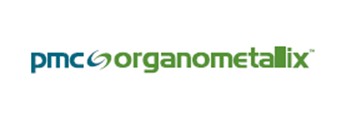PVC heat stabilizers under pressure: What’s Next for Organotins in and beyond the EU?
Why Stabilizers Matter
PVC, a cornerstone material in countless industrial and consumer applications, relies heavily on stabilizers to withstand processing heat and long-term exposure to light and weathering. Without them, PVC decomposes under heat stress — compromising both performance and longevity.

Organotin-based stabilizers, widely used and effective, have come under increasing scrutiny in the EU, driving new investigations and potential restrictions. While these substances are not classified as Persistent, Bio accumulative, and Toxic (PBT), they are facing proposed limits due to concerns about human health and environmental risks.
Regulatory Spotlight: REACH Annex XVII
The EU’s regulatory journey with organotins began in 1989 and continues today under REACH. Entry 20 of REACH Annex XVII bans the use of organotin compounds in biocides for ship coatings, aquaculture gear, and industrial water treatment. It also restricts certain tri-, di-, and mono-substituted organotin compounds in products intended for the public when concentrations exceed 0.1 % tin by weight.
ECHA's 2023 Investigation: A Mixed Bag
In response to a 2022 mandate from the European Commission, ECHA published a report examining PVC and its additives. From an initial list of 470 substances, industry feedback helped narrow the focus to 63—21 stabilizers, 30 plasticizers, and 12 flame retardants.
Eight organotin stabilizers were flagged for varying levels of concern. Three, including dioctyltin bis (2-ethyhexyl thioglycolate) (DOTE), were rated "High Concern." Despite the shortcomings of the report (ignored existing risk assessments, inaccuracies with outdated and misleading information, include substances with no applications for use in PVC), the report concluded that regulatory action is needed to reduce the risks from the organotin compounds. However, industry has pushed back, noting that the report relied on outdated data, including substances no longer used in PVC, and ignored existing risk assessments.
What’s Next?
Under the EU Chemicals Strategy for Sustainability, PVC and its additives are now in Pool 1 of the Restrictions Roadmap — meaning an official request to ECHA for regulatory action is likely imminent. At the June 2025 CARACAL-55 meeting, it was confirmed that no restriction dossier has been filed yet, but the wheels are clearly in motion.
In the meantime, stakeholders like PMC Organometallix are working actively with regulators to advocate for a science-based approach and provide accurate data to correct past misclassifications.
Classification Correction: DMTE Under Review
One of the most significant examples of flawed classification is dimethyltin bis (2-ethylhexyl thioglycolate) (DMTE). Initially classified based on read-across data from dimethyltin dichloride (DMTC), it was labeled with serious reproductive and organ toxicity risks.
Recently, robust testing — led by PMC Organometallix—demonstrates that DMTE does not exhibit these effects. A proposal to update its classification has been submitted and is currently under review in the EU’s Registry of Classification and Labelling.
Towards a Harmonised Worker Safety Standard
Currently, 13 EU Member States maintain national Occupational Exposure Limits (OELs) for organotins — but no harmonized standard exists at the EU level. PMC Organometallix supports the Commission’s initiative to create an EU-wide OEL framework, ensuring consistent protection for workers across the lifecycle of these materials.
DOTE Authorisation: What Users Need to Know
DOTE was added to REACH Annex XIV in 2022, triggering strict deadlines:
- Latest Application Date: November 1, 2023
- Sunset Date: May 1, 2025
PMC Organometallix submitted its Application for Authorisation (AfA) on time, enabling continued use of DOTE in PVC by its downstream customers In the meantime, ECHA’s Committees (RAC and SEAC) have issued opinions supporting the submitted application, and the European Commission is now preparing the legal text for the authorisation.
Global Perspective: Beyond the EU
It’s worth noting: Organotin-based heat stabilizers remain unrestricted outside the EU, including in North America and Asia. These stabilizers retain full functionality over the life of PVC products and are effective even in recycled materials, making them both efficient and sustainable.
Innovation in Bio-Based Stabilizers
As demand grows for renewable, sustainable plastics, PMC Organometallix is innovating with reverse ester tin stabilizers — offering both performance and renewable content. These products, drawn from natural fatty acids (soy, palm, coconut), already achieve up to 80 % renewable content.
Although the technology and commercial availability is not new, the class of reverse ester tin stabilizers have found widespread use in many rigid PVC applications outside of the EU (they are not REACH registered). Reverse ester tin stabilizers are a specific type of tin stabilizer where the ester group is formed in a "reverse" manner compared to traditional esters. PMC Organometallix offers a broad portfolio of methyl-based reverse ester tin stabilizers from the Advastab® product line and butyl-based reverse ester tin stabilizers from the Thermolite® product line. These products allow the largest range for use in potable water pipe formulations published in the TR2 PVC Range Composition Listing of Qualified Ingredients administered by the Plastic Pipe Institute. As well as potable water applications, the range of reverse ester tin stabilizers have found success in conduit, foam board, window profile, opaque sheet and injection moulding applications.
With the increasing importance for renewable sourcing that aligns with the principles of sustainable development and a potential to reduce reliance on finite fossil resources, reverse ester stabilizers can be based on fatty acids derived from natural and renewable sources such as soybean, palm and coconut oils. The renewable content of the range of stabilizers is typically around 40 % but some materials are more than 80 % and PMC Organometallix is actively working toward renewable content options for all application areas.
The choice of both methyl and butyltin reverse ester stabilizer moieties provides flexibility for PVC compounders. More specifically, reverse ester tin stabilizers can provide improved UV weathering performance in both light and midtone colours in comparison to widely used EHMA-based tin stabilizers. Reverse ester tin stabilizers have been found to provide, in certain circumstances, lower foam density in foam applications and lower production costs relative to EHMA-based formulations. In profile substate applications, such as coextruded lineals or siding, Thermolite® 140 and Advastab® 694 provide ample heat stability with high efficiencies.
In the Americas and in Asia, reverse ester tin stabilizers have been identified as providing market-leading performance to produce oriented PVC, or PVCO, articles. Advastab® TM-283SP has found widespread use in this application and in more traditional large diameter pipe extrusion. This material offers a high level of initial stability by withstanding the demanding process conditions from the PVCO manufacturing process but also provide longer term stability needed for downstream or secondary processing of the initial extruded pipe articles.
Reverse ester tin stabilizers from PMC Organometallix provide stabilization at low loading levels but with moderate to high renewable content while providing excellent thermal stability across a wide range of PVC processes and finished articles.
Final Thoughts: Science First
As the EU regulatory environment continues to shift, the future of organotin stabilizers in PVC hinges on accurate science, open dialogue, and responsible innovation. PMC Organometallix is leading efforts to ensure regulators have the facts, users retain performance, and sustainable solutions remain within reach.
PMC Organometallix will be exhibiting at K-2025 in Düsseldorf from October 8 to 15, 2025, at Nordmann's booth 6E75 in Hall 6. Further information about PMC Organometallix's products and its commitment to regulatory compliance will be available at the exhibition.
Alternatively, please contact Nordmann. We will be happy to assist you.

Distributed in:
Austria, Czech Republic, France, Germany, Hungary, the Netherlands and Poland.


Interview with Jost E. Laumeyer

Honeywell A-C® Performance Additives: Revolutionizing Plastic Recyclability



